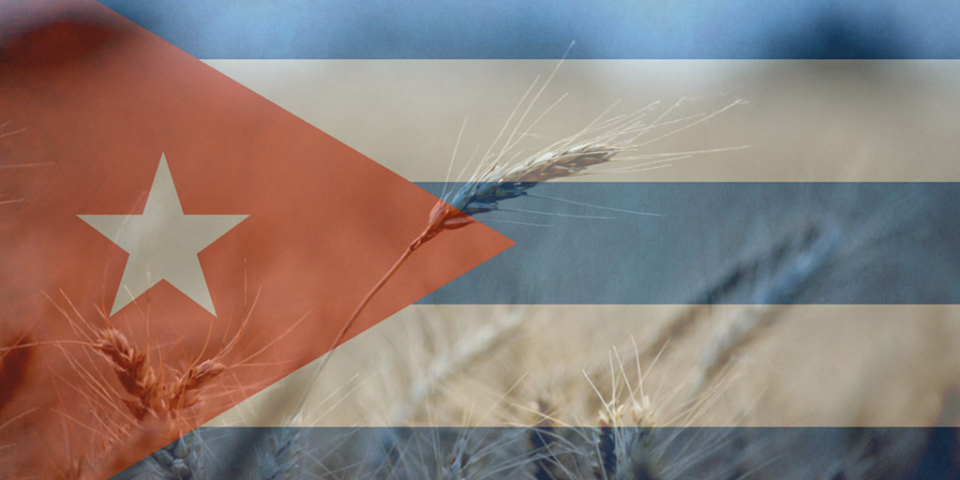Cubans and U.S. Grain Trade Officials Meet to Discuss New Opportunities
By Ben Conner, USW Deputy Director of Policy
This week, a team of Cuban agriculture and trade officials visited the United States to explore the U.S. grain production system at the invitation of the U.S. Grains Council, which asked USW to present information about U.S. wheat trade at a meeting with the officials in Washington, DC.
The Cuban team included representatives from the Ministry of Agriculture, Ministry of International Trade and ALIMPORT, the government agency in charge of grain imports. The group met with wheat farmers from Kansas, Texas and Maryland along with USW staff including Regional Vice President Mitch Skalicky, based in Mexico City. The discussion centered on issues that impede U.S. wheat exports to Cuba. Following meetings in Washington, DC, the Cuban team travelled to Maryland, Missouri and Louisiana to learn more about U.S. grain production, trading and processing.
This was an important opportunity ultimately because trade relationships based on mutual trust may be forged even though political barriers exist. Today, there are still requirements that Cubans must pay cash in advance of receiving U.S. agricultural exports. That requirement does not exist for any other country. In fact, these regulations make all business in the Caribbean more difficult. A baker or miller in a nearby country wanting to sell their products to Cuba pays the shipper more due to of the cost of compliance with U.S. trade laws.
Businesses exporting wheat should be able to make a judgment based on their assessment of political risk. They do it all the time. There needs to be enough trust to ensure the price risk to U.S. exporters is minimized. The arrival of Cuban grain trade officials on U.S. shores demonstrates that Cubans want to reach a position of mutual trust.
Ojalá — hopefully — this U.S. visit by Cuban agriculture and trade officials is a sign of a brighter, more trustworthy future between the people of these two countries that are so close, yet so far apart. If trade and regular interaction with farmers and agribusinesses to the north is given the opportunity to flourish, that day may come sooner
For those interested in more information on the potential of U.S. trade with Cuba, see the U.S. International Trade Commission report released Monday here.


